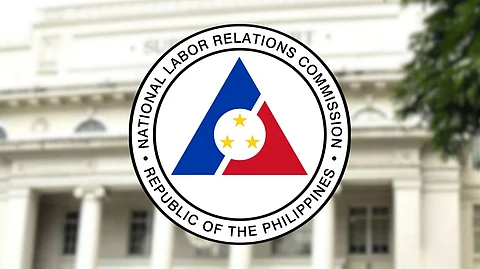
- NEWS
- the EDIT
- COMMENTARY
- BUSINESS
- LIFE
- SHOW
- ACTION
- GLOBAL GOALS
- SNAPS
- DYARYO TIRADA
- MORE

The Supreme Court has affirmed the National Labor Relations Commission’s (NLRC) authority to enforce Collective Bargaining Agreement (CBA) terms in cases involving unfair labor practices.
In a 5 March 2025, decision penned by Associate Justice Japar B. Dimaampao, the SC’s Third Division upheld an NLRC order directing Guagua National Colleges (GNC) to pay its employees agreed-upon economic benefits. However, the high court adjusted the computation of these benefits.
The case originated from negotiations in 2009 to renew the five-year CBA between GNC and its unions. Although GNC agreed to provide benefits such as a rice subsidy, loyalty pay, and clothing allowance, it repeatedly delayed signing the draft CBA.
Frustrated by the delays, the unions filed a notice of strike, accusing GNC of bad faith and serious CBA violations. To prevent a strike, the secretary of Labor and Employment intervened and referred the case to the NLRC for compulsory arbitration.
The NLRC subsequently ruled that GNC had engaged in bad-faith bargaining, an unfair labor practice, and declared the final CBA draft as the official agreement between the parties. After its decision became final, the NLRC ordered GNC to pay the agreed benefits covering 2009 up to 2017.
GNC challenged the payment order, arguing that only voluntary arbitrators, not the NLRC, had the power to enforce CBA terms. The Court of Appeals upheld the NLRC’s order, a decision with which the Supreme Court concurred.
The SC clarified that while voluntary arbitrators generally handle CBA implementation, the Labor Code authorizes the NLRC to enforce CBA provisions when gross violations amounting to unfair labor practices are involved.
In this case, the NLRC determined that GNC engaged in unfair labor practices by bargaining in bad faith and declared the final CBA draft to be the official agreement. The Supreme Court reasoned that the NLRC, having reviewed the CBA, was best positioned to enforce it, and sending the case to voluntary arbitrators would only cause delays and prolong the resolution of the dispute.
However, the Supreme Court did rule that the computation of benefits by the NLRC was incorrect. It held that the computation should exclude any signing bonus and cover only the five-year CBA term, specifically from 2009 to 2014.
